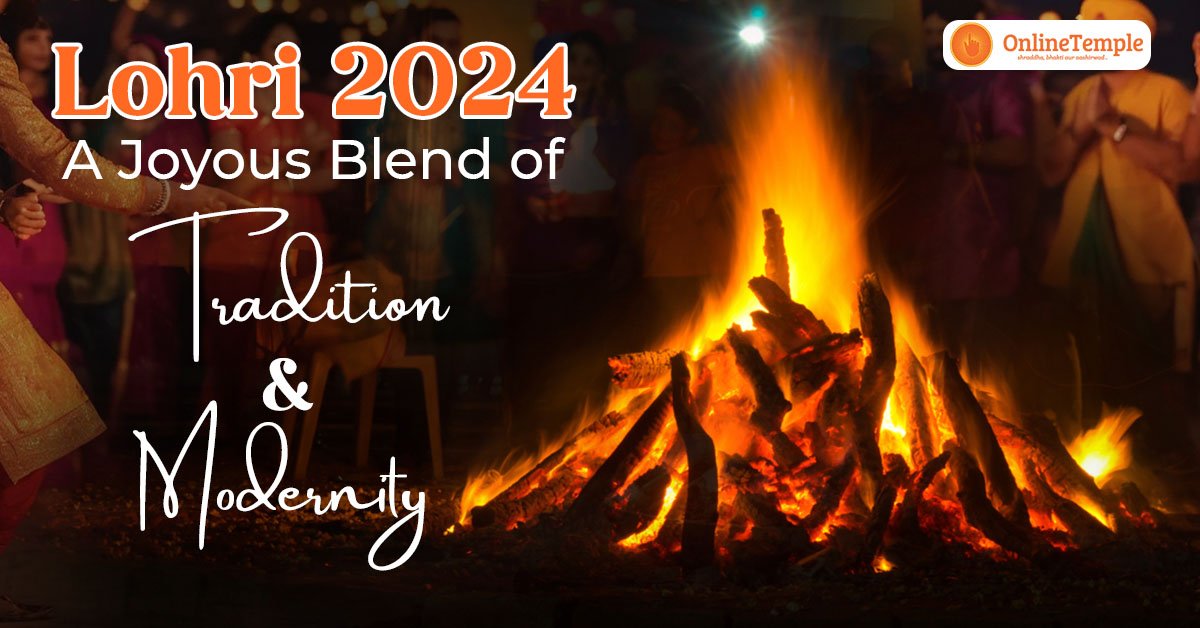In India, Sikhs and Hindus celebrate Lohri, a well-known harvest festival, every winter. It is observed the night before Makar Sankranti and is celebrated with great fanfare in northern India. Lohri, the first of many Hindu holidays celebrated throughout the year, is especially significant to the farming community since it is a harvest celebration that signals the end of the long, chilly winter solstice nights. New Rabi crops and aspirations for a bountiful harvest are primed together with the end, which also represents a fresh start. You should explore the Book Online Pujas Services to gain a new perspective on Hindu tradition and custom.
Contrary to popular belief, Lohri is not only a festival in northern India, particularly Punjab, but it is also celebrated in the southern regions, yet under different names such as Pongal and Makar Sankranti. It is also a scientific phenomenon because it is based solely on astronomy and the crop cycle, which are agnostic to religion. It is essentially a celebration of the rebirth or return of sunlight to the northern hemisphere. Subsequently also happens to fall during harvest season. Lohri is now widely perceived by Bollywood as fancy food, dancing around the fire to chartbuster tunes with family and friends, and simply enjoying the bonfire. However, the festival has a very deep religious and scientific significance. Let’s examine the historical significance of Lohri and the evolution of its celebrations.
Historical and Legendary Significance of Lohri
The Lohri festival is the subject of numerous legends and folklore. Let’s examine the most important ones:
The Legend of Dulla Bhatti
The origins of the Lohri festival are the subject of numerous legends, the most famous and intriguing of which is “Dulla Bhatti”. A local hero among the impoverished, Dulla Bhatti was a well-liked character who was compared to Robin Hood. He supposedly saved some damsels from the Mughals and raised them as if they were his daughters. Numerous charming folk tunes that honor Dulla Batti’s achievements contribute to the legacy of the Lohri festival. During Lohri, children in the neighborhood collect sweets from all houses in the form of loot, offering them first to the bonfire, and relishing the leftovers as “prasad. You can go on our website Onlinetemple.com and Book your Lohri Puja Online with us and follow all the Hindu traditions and customs.
Lohri Concept: Meaning and Significance
Do you know what the word “Lohri” means? The word “Lohri” comes from “Tilohri,” in which “til” stands for sesame and “rorhi” for gur or jaggery. People consider these foods excellent for cleansing the stomach, and they provide a rich source of nutrients and energy. Many believe that starting the new year with these foods for vigor and energy is auspicious. That is why Lohri prasad primarily comprises food items made of jaggery and til, such as gajjak and chikki.
The Significance of Bonfire
Hindu and Sikh religious beliefs hold that fire is the most effective way to purge negative energy. The fumes of the holy fire have the potential to remove negative energy and provide a positive, fresh start. Since fire is a direct representation of Lord Agni, it is lucky to accept his blessings at the beginning of the year to get off to the best possible start. Furthermore, people consider circling the fire highly auspicious. Religious beliefs state that God instantly answers the prayers of devotees around the bonfire.
Festival of Harvest in Winter
Since Lohri is the first festival of the new year, it is arguably the most sensible and well-liked explanation. India is a major global producer of agricultural goods and heavily relies on its farming community. Across our nation, people observe harvest festivals under various names. Here, farmers give thanks to the gods for a good, seasonal harvest and offer prayers for a bountiful and prosperous future. The chant “Aadar aye dilather jaye,” meaning “may honor come and poverty vanish,” reverberates around the bonfire during celebrations with loved ones. You should explore the Hindu temple puja Services to gain a new perspective on Hindu tradition and custom.
Also Read About: Makar Sankranthi,The Harvest festival

